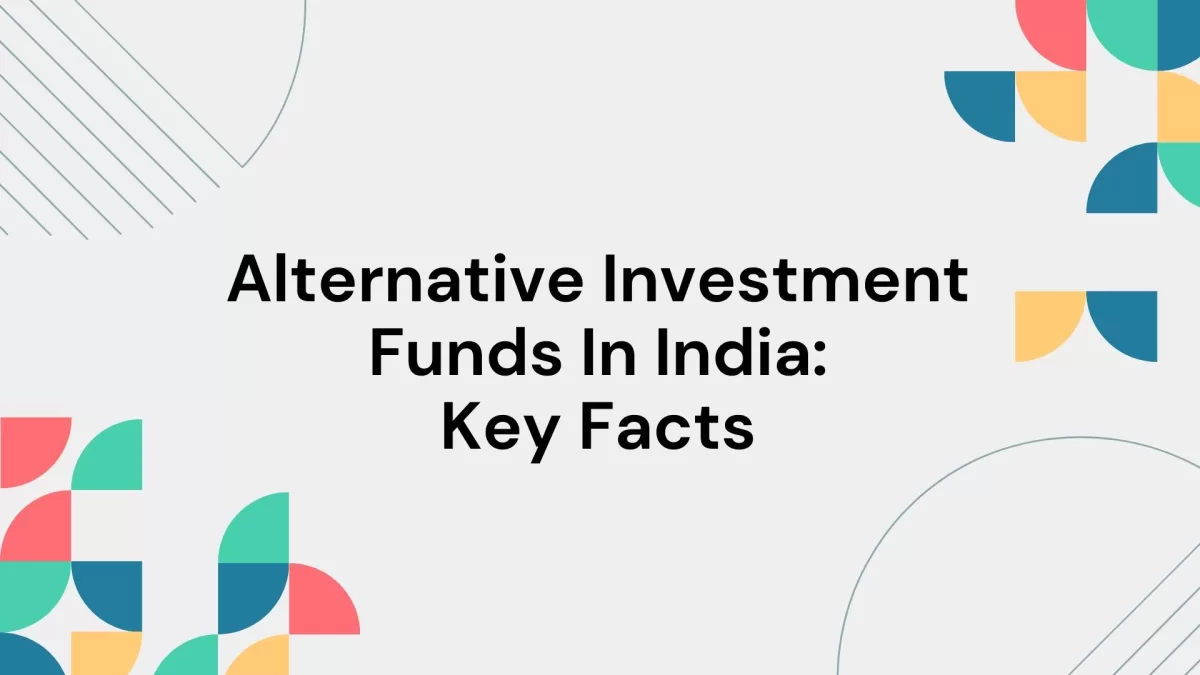Alternative Investment Fund (AIFs) have gained significant traction in India’s financial landscape, offering investors opportunities beyond traditional avenues like stocks and bonds.
As of 2023, India boasts a burgeoning AIF market, with assets under management (AUM) witnessing robust growth. According to recent data, the AUM of AIFs in India reached a staggering ₹2.75 trillion, reflecting a substantial increase compared to previous years.

Categories of Alternative Investment Funds:
- Category I AIFs:
- These funds invest in startups, early-stage ventures, social ventures, small and medium-sized enterprises (SMEs), or infrastructure projects.
- In India, Category I AIFs have played a pivotal role in fostering entrepreneurship and fueling innovation.
- Alternative investments like private equity, venture capital, and various debt instruments are India’s fastest-growing (24% CAGR) segment, representing 12% of India’s AUM. According to a report by 360 One, alternatives could constitute 20% of India’s total AUM by 2026.
- Category II AIFs:
- Category II AIFs include private equity funds, debt funds, and funds for real estate investments.
- In India, Category II AIFs have been instrumental in channeling investments into various sectors, including real estate, which witnessed a resurgence in investor interest post-pandemic.
- Category III AIFs:
- These funds employ diverse trading strategies, including hedge funds, commodity funds, and funds focused on derivatives trading.
- In the Indian context, Category III AIFs have attracted sophisticated investors seeking exposure to alternative assets and higher-risk strategies. Despite being relatively smaller in AUM compared to other categories, they offer diversification benefits to portfolios.
Who Must Invest in Alternative Investment Funds:
AIFs are suitable for investors with a higher risk appetite and a desire for diversification beyond traditional asset classes.
Specifically, accredited investors, high-net-worth individuals, institutional investors, and family offices can benefit from the unique investment opportunities offered by AIFs.
Additionally, those seeking exposure to niche sectors or looking to capitalize on emerging trends may find AIFs particularly appealing.
Potential Benefits of Investing in Alternative Investment Funds:
- Diversification: AIFs provide access to a diverse range of investment opportunities, reducing portfolio concentration risk.
- Higher Returns: Historically, AIFs have demonstrated the potential to generate attractive returns, often outperforming traditional asset classes over the long term.
- Access to Niche Sectors: AIFs offer exposure to niche sectors and alternative assets, allowing investors to capitalize on emerging trends and unique investment opportunities.
- Professional Management: AIFs are managed by experienced fund managers and investment professionals, providing investors with access to specialized expertise and active management strategies.
Conclusion:
As the investment landscape in India continues to evolve, alternative investment funds have emerged as a compelling avenue for investors seeking diversification and higher returns.
Platforms like Excluto are at the forefront of democratizing access to venture capital as an asset class in India, empowering investors to participate in the growth story of promising startups and innovative ventures.
With the AIF industry poised for further expansion, investors have a unique opportunity to explore alternative avenues and unlock the potential of their investment portfolios.
Read More:
Understanding Asset Classes: Categories, Diversification, & Assessment in the Indian Context

